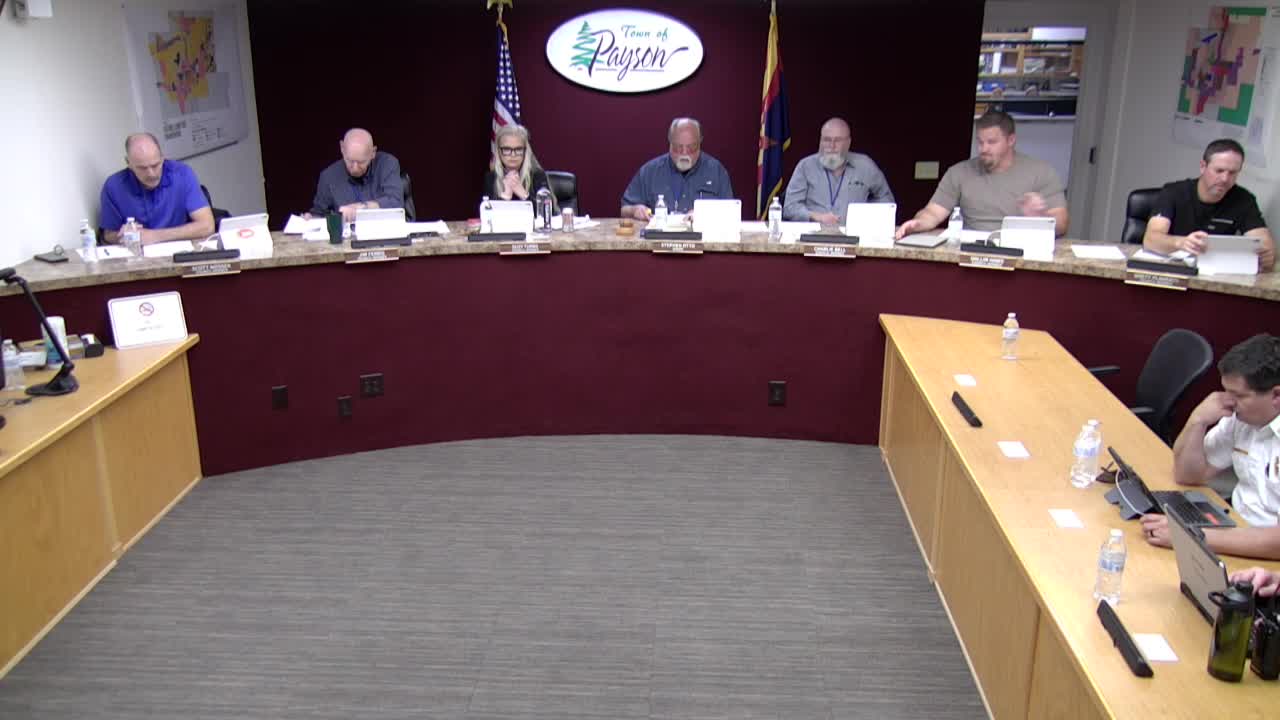Article not found
This article is no longer available. But don't worry—we've gathered other articles that discuss the same topic.
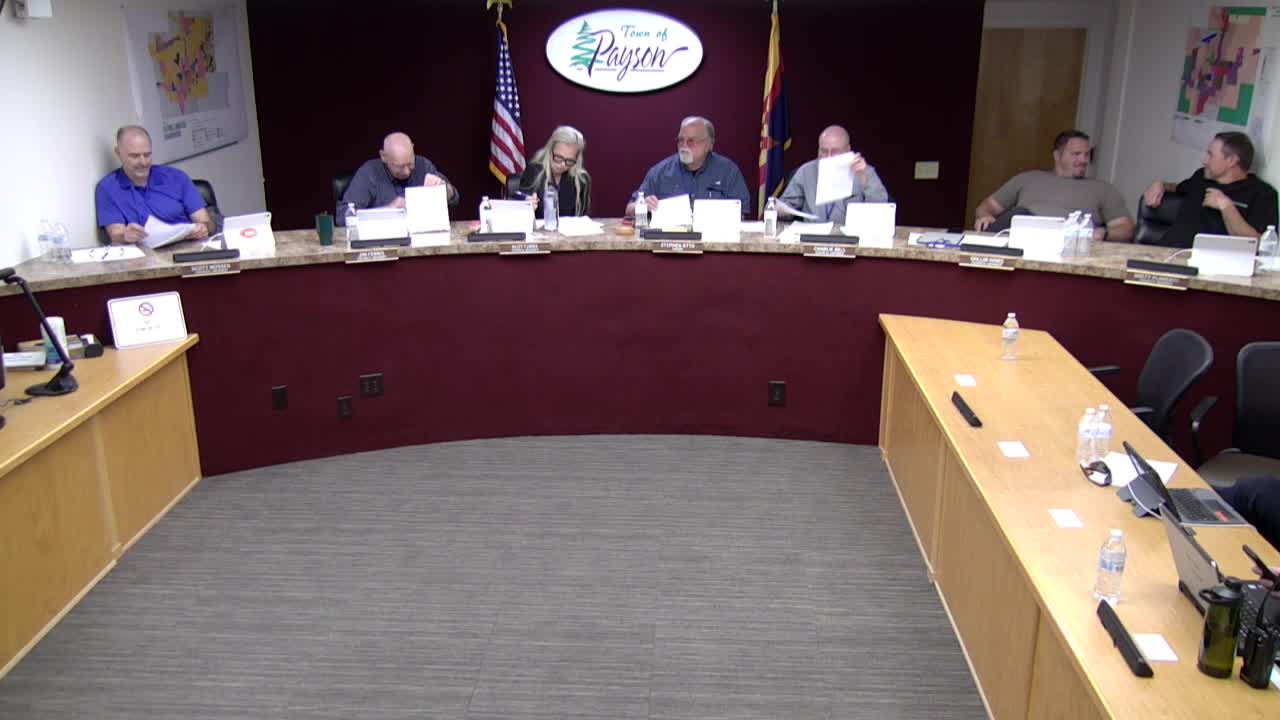
Council approves $150,000 contract to replace Skypark well as water casing failed inspection
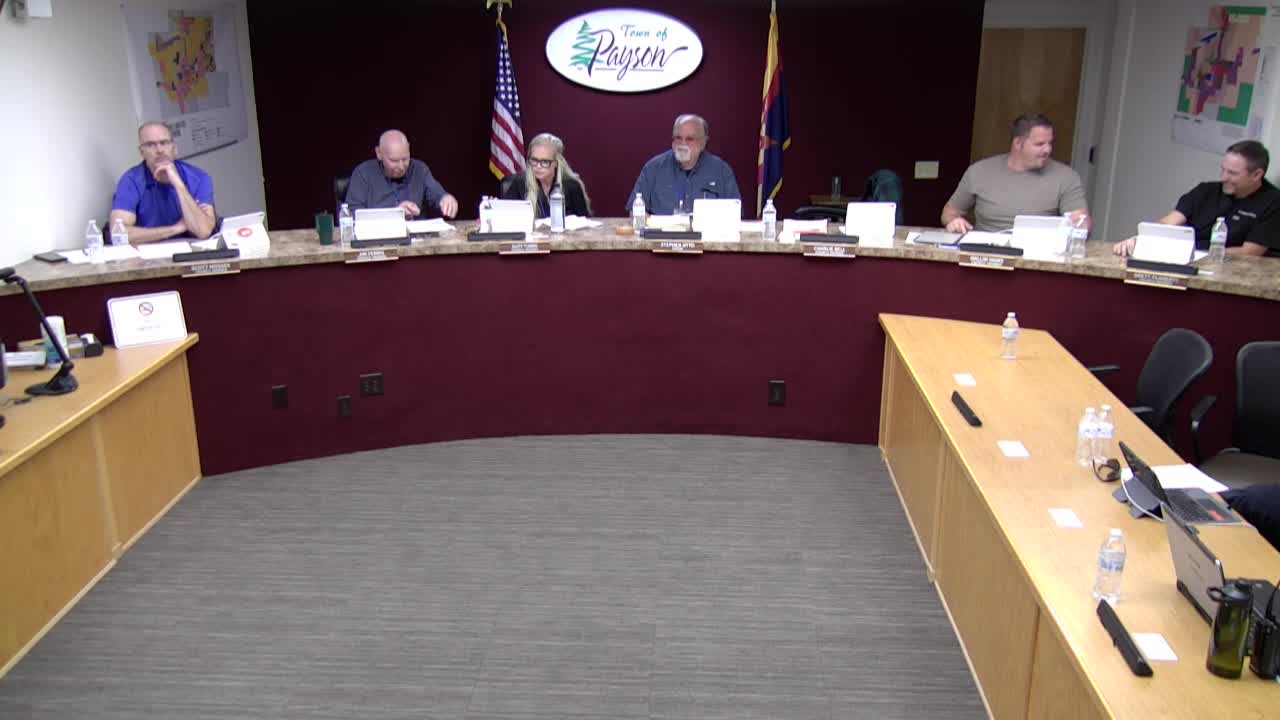
Payson council debates Beeline Bus infrastructure project; directs water contribution cap and seeks other funding sources
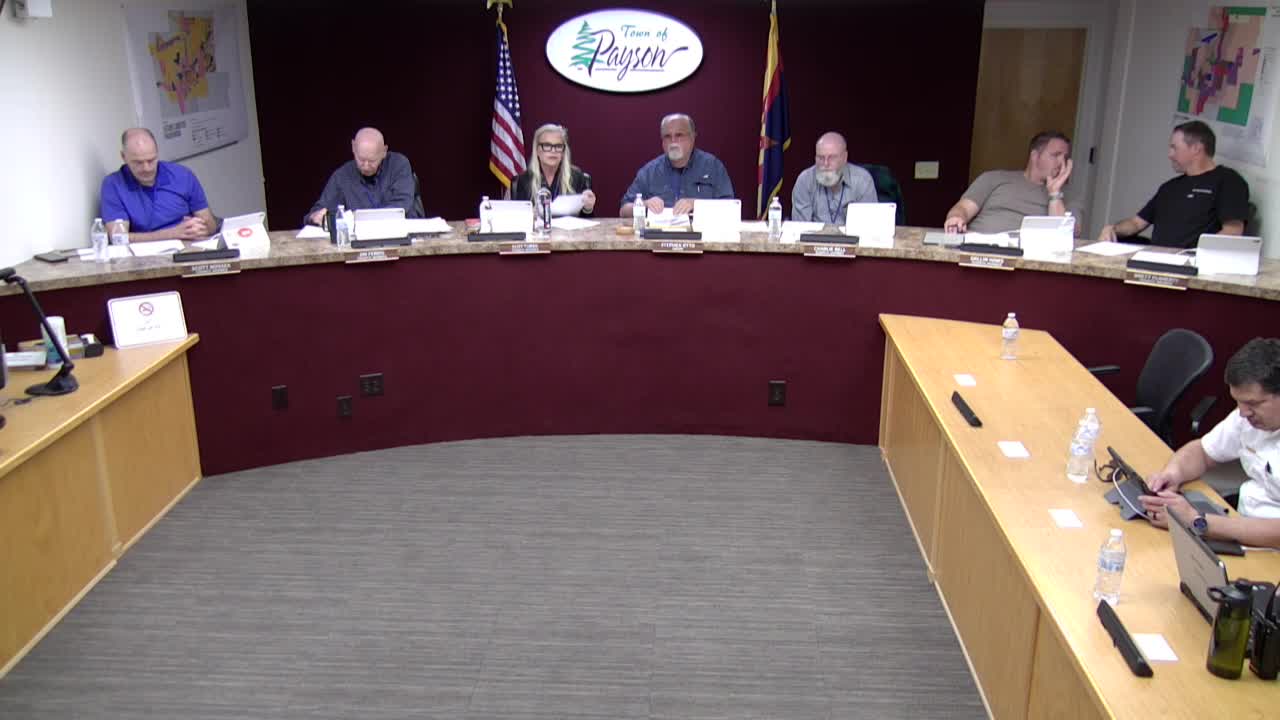
Payson council directs staff to exclude grant‑contingent projects from Exhibit B of budget resolution
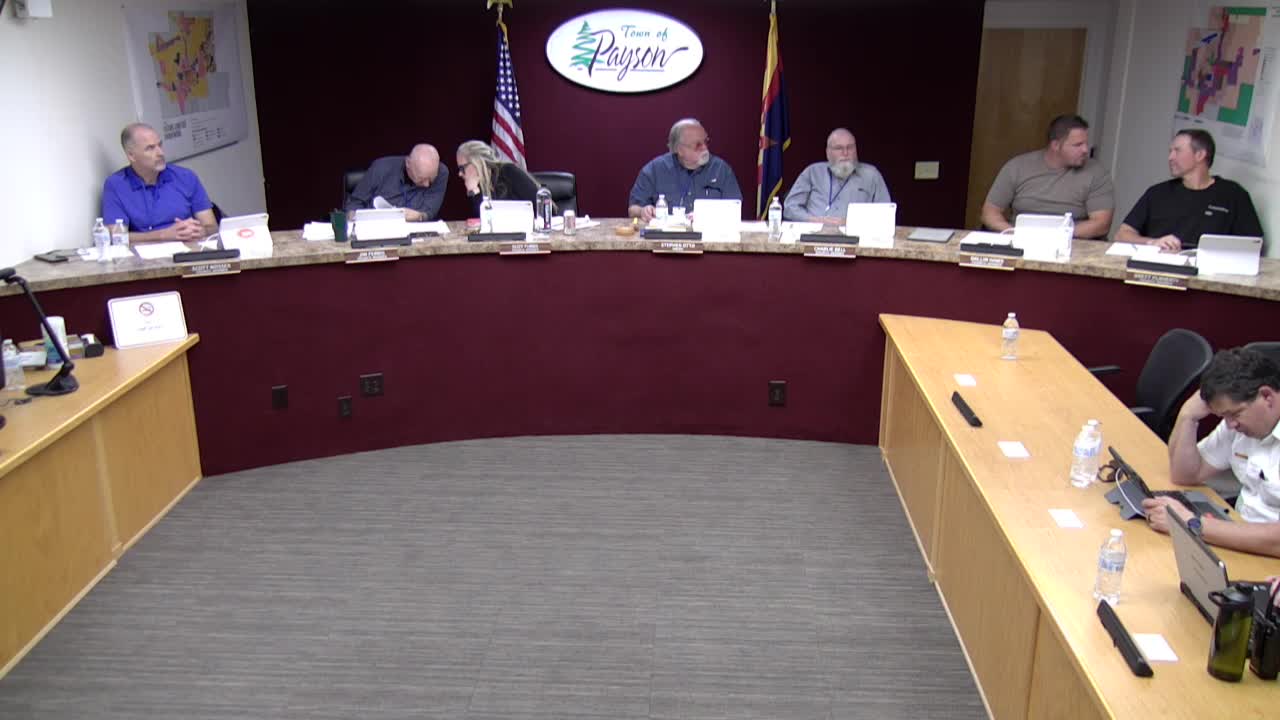
Council hears first public testimony on proposed wildfire structure-hardening code
